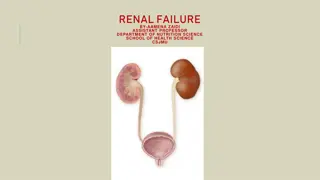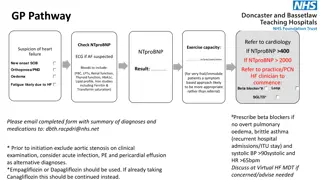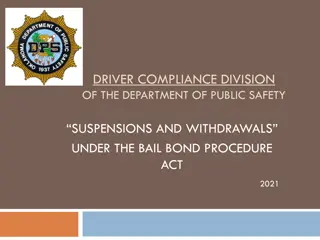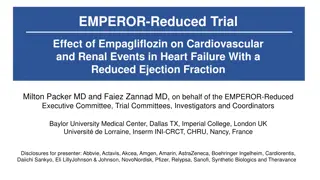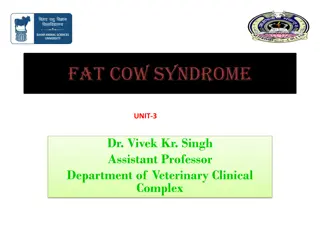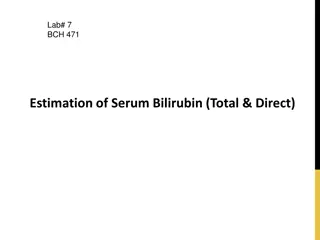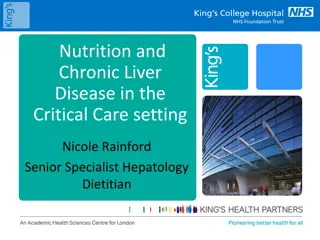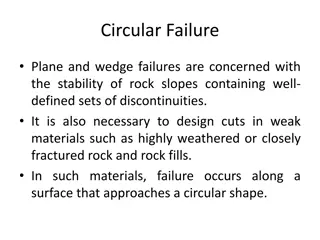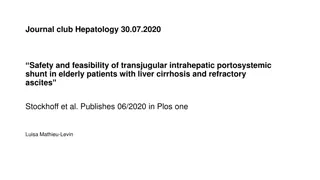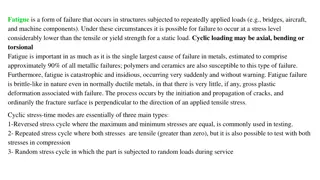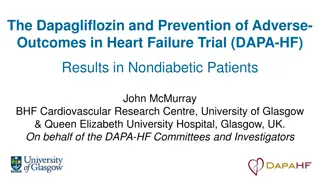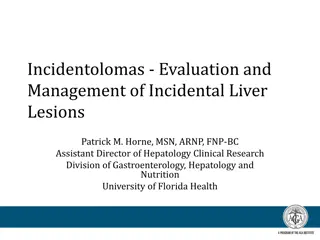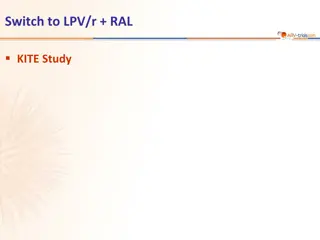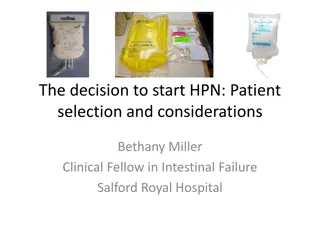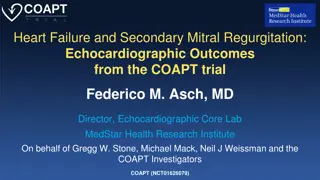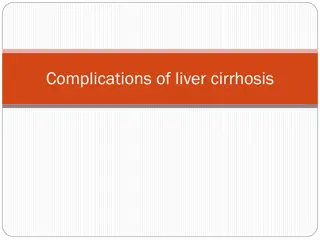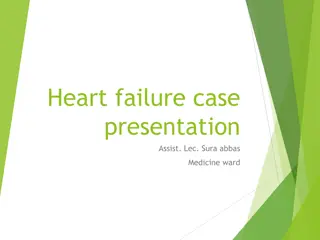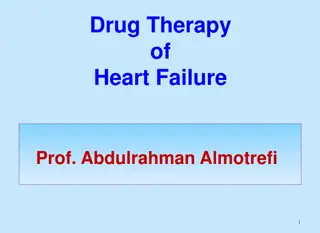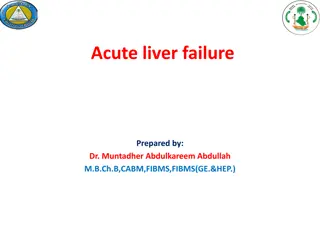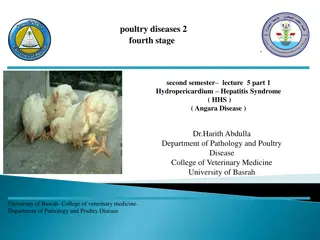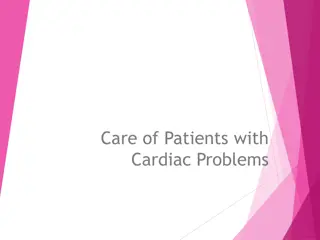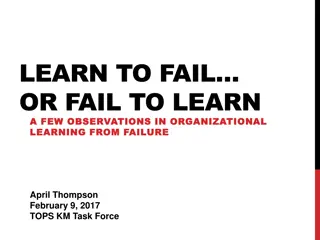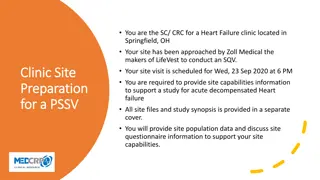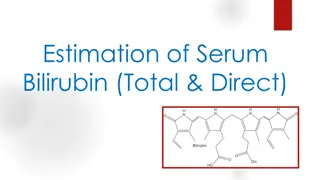FAILURE ANALYSIS
Failure analysis is crucial for addressing disruptions in components or assemblies, preventing recurrence, and ensuring safety. Explore the causes of failure, general procedures, and key considerations in failure analysis to enhance reliability and performance.
0 views • 49 slides
Liver Transplant in India for treatment
Liver is the largest gland in our body, and an important metabolic organ which carries out many essential biological functions. The liver is a wedge-shaped, reddish-brown in color with two lobes of different size and shape. The approximate weight of a human liver is 1.5 kilograms. It is in the upper
5 views • 2 slides
Efficacy and Safety of Ferric Carboxymaltose for Heart Failure with Iron Deficiency
Iron deficiency is prevalent in heart failure patients with reduced ejection fraction and is linked to poor outcomes. The HEART-FID trial investigates the impact of intravenous ferric carboxymaltose (FCM) on all-cause mortality, heart failure hospitalizations, and exercise capacity in chronic HFrEF
1 views • 17 slides
Understanding Kidney Failure: Causes, Symptoms, and Treatment Options
Kidney failure can be temporary or chronic, affecting the body's ability to eliminate toxins. Common causes include diabetes and high blood pressure. Recognizing symptoms early and managing conditions like diabetes can prevent kidney failure. Treatment options such as dialysis and kidney transplant
7 views • 47 slides
Selective Aldose Reductase Inhibitor for Diabetic Cardiomyopathy Treatment
The ARISE-HF study presents primary results on the effectiveness of a selective aldose reductase inhibitor in treating diabetic cardiomyopathy, a common complication of diabetes mellitus leading to heart failure. The study highlights the increased risk of heart failure in individuals with diabetes,
2 views • 23 slides
Pragmatic Urinary Sodium-Based Treatment Algorithm in Acute Heart Failure (PUSH-AHF) Trial Overview
The PUSH-AHF trial, conducted at the University Medical Center Groningen, aimed to evaluate the effectiveness and safety of natriuresis-guided diuretic therapy in acute heart failure. The study design was pragmatic, prospective, single-center, open-label, randomized, and controlled. Key outcomes inc
2 views • 20 slides
Heart Failure Pathway Information and Contact Details
This detailed pathway outlines the diagnostic and management steps for suspected heart failure, including NTproBNP levels, exercise capacity assessment, blood tests, and medication initiation criteria. It also provides information on Virtual HF MDT consultations, specialist support, and contact deta
1 views • 4 slides
Driver Compliance Division of the Department of Public Safety
The Driver Compliance Division of the Department of Public Safety oversees suspensions and withdrawals under the Bail Bond Procedure Act 2021. Failure to appear or pay can result in court actions. Contact information for assistance and bail bond help is provided, along with details on suspensions fo
0 views • 28 slides
Reliability and Failure Analysis in Engineering Systems
Introduction to failure data analysis, goodness of fit testing, stress-strength modeling, and reliability evaluation in engineering systems. Learn about failure rate estimation, MTBF/MTTF calculations, and practical examples illustrating reliability metrics in industrial applications.
0 views • 27 slides
Embracing Failure: Stories of Resilience and Success
Discover the transformative power of failure through the inspiring stories of Neil Gaiman, Michael Jordan, Oprah Winfrey, and Thomas Edison. These remarkable individuals show us that failure is not the end but a stepping stone to growth, innovation, and success. Embrace mistakes, learn from them, an
0 views • 10 slides
Empagliflozin Effects on Heart Failure with Reduced Ejection Fraction: EMPEROR-Reduced Trial Overview
Empagliflozin's impact on cardiovascular and renal events in heart failure with reduced ejection fraction was assessed in the EMPEROR-Reduced trial led by Milton Packer, MD, and Faiez Zannad, MD. The trial, enriched for patients with severe left ventricular dysfunction, randomized participants to em
2 views • 22 slides
Understanding Fat Cow Syndrome in Cattle: Causes, Symptoms, and Treatment
Fat Cow Syndrome, also known as Fatty Liver Disease in Cattle, is a condition commonly seen in high-producing cows during the transition period around calving. The disease is characterized by mobilization of excessive body fat to the liver due to negative energy balance, leading to hepatic lipidosis
1 views • 10 slides
Understanding Bilirubin: Estimation, Implications, and Causes of Jaundice
Bilirubin, a yellow compound in the catabolic pathway, plays a crucial role in health. Estimating serum bilirubin levels is key in diagnosing conditions like jaundice. Elevated levels, above 2 mg/dl, can indicate disease. Jaundice, characterized by skin and eye discoloration, has pre-hepatic, hepati
0 views • 16 slides
Nutritional Considerations for Chronic Liver Disease in Critical Care
Malnutrition is common in chronic liver disease, leading to complications such as ascites and infections. Sarcopenia and weight loss are prevalent regardless of BMI. Critical care patients with liver disease face challenges due to limited physiological reserve, with main causes for ICU admission bei
1 views • 17 slides
Understanding Circular Failure in Rock Slopes: Causes and Design Considerations
Circular failure in rock slopes, such as those containing discontinuities or weak materials like highly weathered or fractured rock, occurs along circular surfaces. This type of failure is common when geological features are not clearly defined. Factors influencing circular failure, conditions under
0 views • 21 slides
Safety and Feasibility of TIPS in Elderly Patients with Liver Cirrhosis
Challenging liver cirrhosis management in elderly patients with refractory ascites has high mortality rates, and transplantation is not always viable. Transjugular intrahepatic portosystemic shunt (TIPS) serves as a non-curative treatment option, aiming to reduce portal hypertension. The procedure i
0 views • 17 slides
Understanding Fatigue Failure in Structural Materials
Fatigue failure is a common form of structural failure caused by repetitive loading, especially in metals but also affecting polymers and ceramics. This type of failure can occur at stress levels much lower than the material's static strength, often leading to sudden and catastrophic breaks without
0 views • 9 slides
DAPA-HF Trial: Dapagliflozin in Heart Failure Patients without Diabetes
The DAPA-HF trial investigated the use of dapagliflozin, an SGLT2 inhibitor, in patients with heart failure and reduced ejection fraction, regardless of diabetes status. Funded by AstraZeneca, the study enrolled 4,744 patients from 20 countries, showing promising results in reducing cardiovascular d
3 views • 22 slides
Geomechanical Effects of Oilfield Chemicals on Sand Failure in Reservoir Rocks
This study by Elizabeth O. Wuyep et al. explores the geomechanical effects of oilfield chemicals on sand failure in reservoir rocks. It discusses the role of oilfield chemicals, limitations of previous works, experimental flow chart, and static saturation tests. The research emphasizes the need for
0 views • 25 slides
Evaluation and Management of Incidental Liver Lesions
Understanding the natural history, evaluation, and management of benign liver lesions is crucial for diagnosing incidental liver findings. Common benign liver lesions include hepatic hemangioma, focal nodular hyperplasia, hepatic adenoma, and hepatic cyst. Differential diagnosis plays a key role in
0 views • 37 slides
Switch to LPV/r + RAL Study: Efficacy and Safety Findings
This study, named KITE, focused on switching to LPV/r and RAL treatment in HIV patients without virologic failure. The trial included 40 participants continuing triple therapy, with primary endpoints being HIV RNA levels and event-free treatment failure. Results showed high virological response rate
0 views • 6 slides
Parenteral Nutrition in Intestinal Failure Related to Advanced Abdominal Cancer
Discussion on parenteral nutrition in patients with intestinal failure secondary to advanced abdominal cancer, including considerations for patient selection, Christie referral pathway, and practicalities of home parenteral nutrition. The background highlights the increasing commonality of home pare
0 views • 40 slides
Embracing Failure and Unconventional Wisdom
Challenging conventional beliefs, Vinod Khosla encourages embracing failure as a pathway to success. His insights urge individuals to defy norms, challenge authority, and explore beyond boundaries. Through thought-provoking scenarios and unconventional advice, Khosla advocates for risk-taking, irrev
0 views • 55 slides
Echocardiographic Outcomes in Heart Failure Patients with Secondary Mitral Regurgitation: COAPT Trial
This study presents the echocardiographic outcomes from the COAPT trial focusing on heart failure patients with secondary mitral regurgitation. The trial evaluated the impact of MitraClip therapy in conjunction with guideline-directed medical therapy compared to medical therapy alone. Results showed
0 views • 27 slides
Understanding Complications of Liver Cirrhosis
Recognize major complications of liver cirrhosis including hepatic failure, portal hypertension, ascites, hepatorenal syndrome, and esophageal varices. Learn about the pathogenetic mechanisms, clinical features, and pathological findings associated with these complications.
0 views • 30 slides
Understanding Complications of Liver Cirrhosis
Learn about the major complications of liver cirrhosis, including portal hypertension, hepatic failure, ascites, spontaneous bacterial peritonitis, and more. Explore the pathogenetic mechanisms, clinical features, and pathological findings associated with these complications, and understand the impa
0 views • 31 slides
Understanding Hypertrophic Cardiomyopathy (HCM) in a Middle-Aged Female with Heart Failure
A 55-year-old female with a history of hypertension and heart failure presented with symptoms of dyspnea, chest pain, and a positive family history of cardiac disease. Exam findings included LVH on ECG and a systolic murmur at LLSB. This case highlights the importance of recognizing and managing hyp
0 views • 20 slides
Comprehensive Heart Failure Case Presentation: Diagnosis and Treatment Plan
A 68-year-old man with a history of CAD and diabetes presents with symptoms of heart failure, including dyspnea and fluid retention. His medical history, physical exam, and diagnostic tests reveal signs consistent with heart failure. Further evaluation and treatment planning are necessary to manage
0 views • 28 slides
Functional Anatomy and Blood Supply of the Liver
The liver is a crucial organ with dual functions and a complex anatomical structure. It consists of hepatic lobes and lobules, where hepatocytes play a vital role in various functions. The liver receives blood supply from both the hepatic artery and portal vein, allowing for essential processes such
0 views • 20 slides
Understanding Failure Modes and Effects Analysis (FMEA) Training
Failure Modes and Effects Analysis (FMEA) is a methodology that helps in process improvement by identifying and eliminating concerns early in the development of a process or design. It aims to improve customer satisfaction, manage risks, and prevent defects. Training objectives include understanding
0 views • 25 slides
Drug Therapy of Heart Failure
Explore the various classes of drugs used for treating acute and chronic heart failure, including their mechanisms of action, pharmacological effects, clinical uses, adverse effects, and interactions with other drugs. Learn about the causes, symptoms, pathophysiology, and factors affecting cardiac o
0 views • 51 slides
Dealing with Failure: Overcoming Spiritual Challenges as a Christian
Facing failures is a common experience for Christians, whether spiritually or materially. It is essential to reflect on the reasons behind failure, seek guidance from God's perspective, and embrace repentance when necessary. Failure is a part of life, but it is how we respond to it that truly matter
0 views • 16 slides
Overview of Acute Liver Failure: Causes, Classification, and Diagnosis
Acute liver failure is a severe condition characterized by rapid liver dysfunction within 6 months of symptom onset, leading to encephalopathy, coagulopathy, and jaundice. This condition can be classified as hyperacute, acute, subacute, fulminant, or sub-fulminant based on the duration from jaundice
0 views • 16 slides
Hydropericardium Hepatitis Syndrome (HHS) in Poultry: Causes, Symptoms, and Prevention
HHS is an acute infectious disease in chickens characterized by high morbidity and mortality, excess pericardial fluid, and multifocal hepatic necrosis. It mainly affects broilers and broiler parents, with clinical signs such as sudden mortality, lethargy, and ruffled feathers. Post-mortem lesions i
0 views • 6 slides
Understanding Cardiac Problems and Heart Failure
This educational content covers essential information on caring for patients with cardiac problems, including blood flow through the heart, causes and types of heart failure, such as left-sided and right-sided heart failure, as well as high-output failure. It also discusses the classification and st
0 views • 24 slides
Observations in Organizational Learning from Failure
Explore the importance of learning from failure in organizational settings through initiatives such as failure forums, peer-assisted problem-solving sessions, and reframing failure as a stepping stone to success. Encouraging open discussion of failure, sharing experiences externally, and promoting a
1 views • 6 slides
Heart Failure Clinic in Springfield, OH - Site Visit for LifeVest Study
Heart Failure clinic in Springfield, OH has been approached by Zoll Medical to conduct a study on acute decompensated heart failure. The clinic's capabilities, staff, and procedures for patient recruitment during COVID-19 are discussed. The study focuses on patients with systolic or diastolic heart
0 views • 14 slides
Macromechanical Analysis of Lamina and Tsai-Hill Failure Theory Overview
The Tsai-Hill failure theory is based on the strengths of a unidirectional lamina, incorporating longitudinal and transverse tensile and compressive strengths, as well as in-plane shear strength. This theory, derived from the distortion energy theory, provides criteria for determining lamina failure
0 views • 15 slides
Understanding Serum Bilirubin: Types, Estimation, and Causes of Jaundice
Serum bilirubin levels are crucial in diagnosing conditions like jaundice, with total, direct, and indirect bilirubin playing key roles. Excess bilirubin in the blood can lead to jaundice, characterized by yellow discoloration of the skin and eyes. Different types of jaundice, including pre-hepatic,
0 views • 14 slides
MESA Heart Failure Study: Research Aims and Findings
The MESA Heart Failure Study led by Shah and Bertoni aims to determine the prevalence of early heart failure, explore the pathogenesis through risk factor associations, biomarkers, and machine learning analyses, and understand phenotypic signatures related to heart failure subtypes. The study involv
0 views • 10 slides



